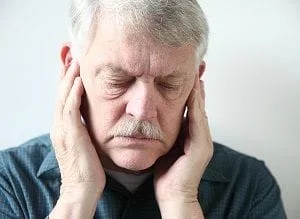TMJ Treatment in Washington, DC
People who grind their teeth can sometimes develop a serious problem with their jaw, which left untreated, can adversely affect the teeth, gums and bone structures of the mouth.

One of the most common jaw disorders is related to a problem with the temporomandibular joint, the joint that connects your lower jaw to your skull, and allows your upper and lower jaw to open and close and facilitates chewing and speaking.
People with temporomandibular joint disorders (TMD) often have a clicking or popping sound when opening and closing their mouths. Such disorders are often accompanied by frequent headaches, neck aches, and in some cases, tooth sensitivity.
Some treatments for TMD include muscle relaxants, aspirin, biofeedback, or wearing a small plastic appliance in the mouth during sleep.
Minor cases of TMD involve discomfort or pain in the jaw muscles. More serious conditions involve improperly aligned joints or dislocated jaws. The most extreme form of TMD involves an arthritic condition of the jaw joint. Traumatic injuries also can cause jaw dislocation.
In these cases, jaw surgery may be required to correct the condition. Some jaw surgery can be performed arthroscopically.
What is temporomandibular joint dysfunction (TMJ)?
TMJ, also referred to as TMJD or TMD, is an abbreviation for temporomandibular joint dysfunction. It describes problems with the joint that connects your to your skull. The movement of these joints can be felt by placing the fingers on each side of the face, directly in front of your ears, and opening and closing the mouth.
People who experience TMJ typically have pain in the general area of the jaw joint, which may present as headaches or radiate into the neck, shoulders and inside the ears. They may be unable to open their mouth widely; the jaw may even "lock" in an open or closed position. There is often a feeling of grinding or clicking that accompanies jaw movements like talking or chewing. Some TMJ sufferers notice that their upper and lower teeth do not fit together properly.
Causes of TMJ

Dentists diagnose TMJ through a combination of diagnostic imaging and physical examination; the movement of the jaw and the bite will be evaluated and compared with X-rays, CT scan or MRI images.
There are several treatments for TMJ that can be performed at home. Both over-the-counter and prescription medications can alleviate pain and promote muscle relaxation; alternating heat and ice to the affected area can also be helpful. Eating soft foods during "flare-ups" helps to give the jaw a much-needed rest. Holding the mouth properly - teeth slightly apart - relieves unnecessary pressure. Stress-relief therapy like yoga or massage may also help the patient achieve a more relaxed overall state.
If more conservative methods fail to bring relief, treatments like laser or TENS therapy may be necessary. In severe cases, surgery to repair the joint tissue or bones may be the most effective option.
For more information on TMJ Treatment in the Washington, DC area Call Ralph T. Mazzuca, D.D.S. at (202) 537-1088 today!

